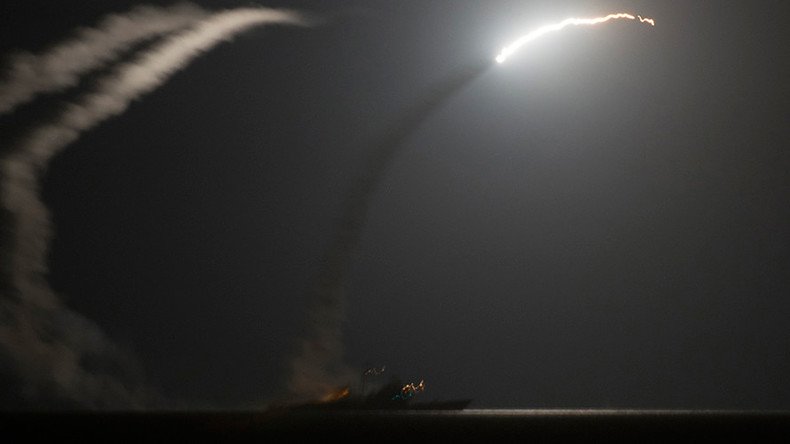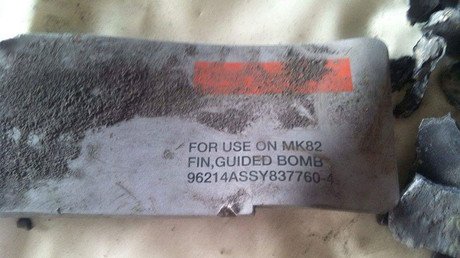‘Limited self-defense strikes’: US military destroys 3 ‘radar sites’ in Yemen

The US military has carried out a series of “limited self-defence strikes” in Yemen, the Pentagon has announced. The attack, authorized by President Obama, was carried out in retaliation to recent attacks on the US naval destroyer, USS Mason.
According to the Pentagon’s initial assessments, three “radar sites” in the Houthi rebel-controlled area of Yemen were destroyed in the attack.
The attack on coastal targets was carried out by Tomahawk cruise missiles launched from the destroyer USS Nitze, NPR reported. According to US officials all targets were “in remote areas, where there was little risk of civilian casualties or collateral damage.”
“These limited self-defense strikes were conducted to protect our personnel, our ships, and our freedom of navigation in this important maritime passageway,” the statement reads.
'Strikes were conducted to protect our personnel, our ships, and our freedom of navigation' https://t.co/UC6Vdh4z4ypic.twitter.com/mmHxBXp600
— RT America (@RT_America) October 13, 2016
President Barack Obama authorized the strikes on the recommendation of Secretary of Defense Ash Carter and Chairman of the Joint Chiefs General Joseph Dunford, Pentagon press secretary Peter Cook said in a statement.
The US military vowed to respond to “any further threat to our ships and commercial traffic.”
READ MORE: US Navy claims destroyer targeted again by Yemen missiles
Earlier on Wednesday, USS Mason fell under fire for the second time in four days. At least one rocket was fired at the destroyer, causing “no damage to the ship or its crew,” Cook said.
However, the Houthi movement has denied that it carried out the attack. A military source reportedly told Saba news agency - a media outlet run by the group - that the assault did not come from areas under its control.
"These allegations are unfounded and the people's committees have nothing to do with this action," the source said.
Until now, Washington - a major ally of Saudi Arabia - has limited its engagement in Yemen to intelligence sharing, reconnaissance and aerial refueling of Saudi-led coalition jets. The US has also supplied weapons to Saudi Arabia.
Fragments of US-supplied munitions were recently found at the scene of a Saudi strike on a mourning hall in the Yemeni capital Sana’a.
Human Rights groups have repeatedly criticized the US and the UK for supplying arms to Saudi Arabia which continues to bomb civilian targets in Yemen. Critics continue to accuse the Saudi-led coalition of using cluster munitions, which are banned in most countries.
Last year Noble Peace Prize winner President Barack Obama authorized US forces to provide support to the Saudi-led coalition by creating a “Joint Planning Cell.” The State Department admitted to providing the Saudis with “intelligence sharing, targeting assistance, advisory and logistical support”.
“As part of that effort, we have expedited weapons deliveries, we have increased our intelligence sharing, and we have established a joint coordination planning cell in the Saudi operation centre,” Deputy Secretary of State Tony Blinken said in April 2015.
However, in light of heavy civilian casualties and international pressure, Washington has promised to “reconsider” its assistance to Riyadh.
Saudi Arabia, along with eight Arab state allies, began a military operation in Yemen in March of 2015 at the request of Yemeni President Hadi, a Sunni, who fled the country after Shiite Houthi rebels seized the capital of Sana’a. The rebels recognize Abdullah Saleh, the country’s previous president who was forced to step down back in 2012.
A UN-backed peace process to end the civil war has so far yielded few results. The war has so far killed an estimated 10,000 people, nearly half of them civilians, according to the United Nations.













